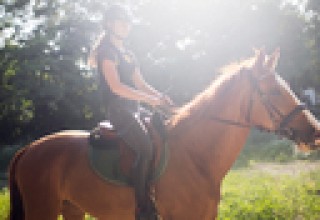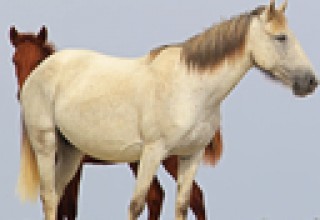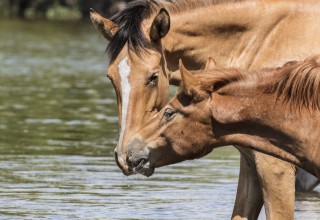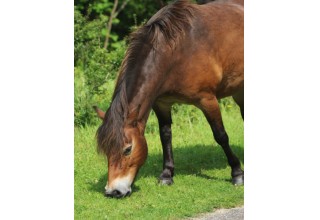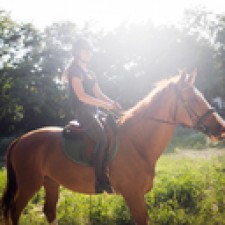
BOULDER, Colo., August 24, 2017 (Newswire.com) - From an early age, Christina Inserillo has been riding horses. For fun and in competitions, she has taken her love of horses into her career. She is currently working on her graduate degree in Animal Health, becoming an expert in not only helping her own horses but the horses of others.
“The feeling of riding a horse is liberating,” Inserillo says. “I have been riding since I was a young child and to be able to help others fall in love with horseback riding is a rewarding experience.”
It can be intimidating for a young rider to take on the responsibility of riding a horse in competition, but once you establish commands and get comfortable in the saddle, it can be a fun and challenging experience.
Christina Inserillo
While she is studying, she is helping beginners learn the basics in horseback riding and competition-style equestrianism.
Christina Inserillo has been teaching riders who are interested in the field of hunter-jumper style riding. The hunter-jumper division of competitive horseback riding is a style that is judged at shows around the country. These shows are judged on the horses' performance, soundness and when indicated, conformation, suitability, and manners.
While Warmblood or Thoroughbred horses are used in competitions, a hunter-style pony is used for beginners who are younger in age, particularly youth classes.
“It can be intimidating for a young rider to take on the responsibility of riding a horse in competition, but once you establish commands and get comfortable in the saddle, it can be a fun and challenging experience,” says Inserillo.
While Christina Inserillo has been studying for her Animal Health degree, she has learned about the diet and health of horses needs to be stressed for new riders and owners, just as much as learning to ride. Learning the correct diet habits of horses is important to helping the animal fight off various diseases and illnesses.
Horses have been found to be susceptible to arthritis, West Nile Virus, influenza, tetanus, and sleeping sickness. If healthy horses are given the proper diet along with the correct supplements, their overall immune system will be protected from those type of illnesses.
The challenge is that scientists are hampered by an apparent inability to properly measure the immune system of a horse. The result is that it is equally difficult to measure whether certain foods have a positive or negative effect. Some scientists have suggested that one way to find out whether foods work would be to purposefully compromise the health of a horse, which is something that Inserillo vehemently opposes.
Scientists around the world have proposed studying diseased horses, testing different kinds of nutrition to see which ones would improve their health. However, for Inserillo, this would be reactive rather than proactive science, as her interest lies not in healing horses, but in preventing them from getting sick in the first place.
Inserillo points out that more needs to be done, and that feeding a horse a healthy, balanced, and nutritious meal is common sense. However, determining what that consists of, particularly now that horses no longer roam in the wild in most areas and are instead domesticated animals, is much more difficult. What would be classed as balanced and nutritious for humans, for instance, may not have the same effect on equine digestive health and the immune system.
With her education and experience around horses, she hopes to continue to spread awareness to proper riding and diet to young and beginners in horseback riding. From casual riding to competitive, all riders need to understand the important factors that go into having a happy, healthy horse.
“After I graduate, I really hope to build upon my career and not only help riders and horse-lovers locally, but nationwide,” Christina Inserillo adds. “My future is being hands-on with the horses, and it starts with us continuing to learn more about this wonderful animal.”
Source: Christina Inserillo
Share:
